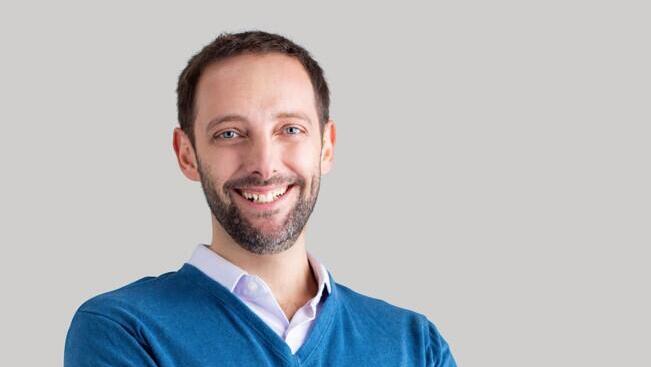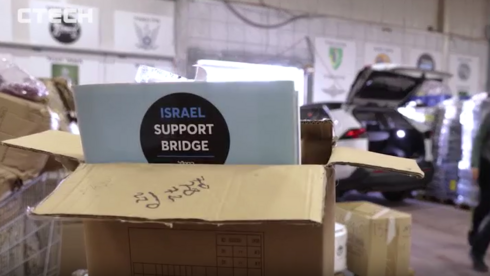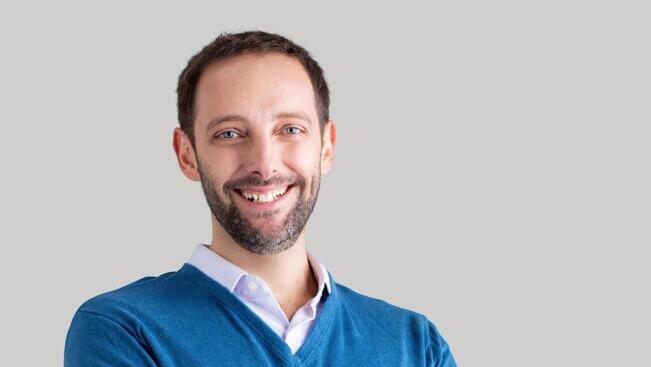
2022 VC Survey
“Even with a likely global recession upon us, we are bullish on the opportunities to invest”
Intel Capital’s Roi Bar-Kat joined CTech to discuss some of the trends seen in the VC space and how to keep finding success in economic downturns.
“Companies that catered to short-term trends and lacked long-term market potential were the losers of 2022,” said Roi Bar-Kat, Head of Intel Capital Israel, when reflecting on the last 12 months. “Hopping on the hype cycle of the new, shiny technology isn’t always sustainable and the success often doesn’t materialize as well as people think. That, coupled with high burn rates used to fuel attempts at rapid growth at the expense of efficiency, led to many unhealthy companies.”
Despite uncertainty in the market, Intel Capital has invested through economic downturns in the past and the world has still seen some of the most successful companies come out of recessions such as Microsoft, Slack, and Uber. “Generally we’re optimistic, but also realistic in deploying capital against real market traction and we advise our portfolio to do the same,” he added.
Name of fund/funds: Intel Capital
Total sum of fund: Investing $350-500M annually
Managing Partners: Dave Flanagan, Andy Fligel, Anthony Lin, Mark Rostick, Trina Van Pelt, Nick Washburn
Notable/select portfolio companies: MinIO, Anyscale, DataRobot, Immuta, Lightbits, Neuroblade, Motivo, SambaNova, 3D Glass Solutions, Astera Labs, Overwolf, BoomTV, Aledia, BlueStacks, Syntiant, Orcam, Joby, Beep, Fabric8Labs, Exo Imaging
Bar-Kat joined CTech to discuss some of the trends in more detail.
If 2020 was the year of the pandemic, and 2021 was the year of records, how would you define 2022 in the VC sector?
I think of 2022 as the year of early-stage investments. We’ve seen late-stage investment activity decline throughout this year, causing some to think the overall investing landscape was shifting, but not all investing activity had the same fate. Amid ongoing public market turbulence, VCs shifted their focus to early-stage (Seed and Series A) companies. I love getting in early with a company that’s led by a strong, intelligent team and is solving a real problem in a significant market, and supporting them through their growth.
Who are the big winners of 2022 and why?
Companies that are truly solving a major pain point for their customers, and doing so better than their competitors, were the big winners of 2022. It’s no longer enough to just have a well-made product. Companies that cut through the noise, while adhering to efficient go-to-market methods, are those that differentiate themselves from their competitors and deliver real value to their customers.
Industry-speaking, in Israel, AI and Cybersecurity were winners of 2022. In Q1 2022 alone, cybersecurity startups raised $1.7 billion and AI startups raised $942 million.
Who are the big losers of 2022 and why?
Companies that catered to short-term trends and lacked long-term market potential were the losers of 2022. Hopping on the hype cycle of the new, shiny technology isn’t always sustainable and the success often doesn’t materialize as well as people think. That, coupled with high burn rates used to fuel attempts at rapid growth at the expense of efficiency, led to many unhealthy companies.
What do you expect in the VC sector in 2023?
There’s uncertainty in the market - and in the world in general; we’re all feeling it. But Intel Capital has invested through multiple major economic downturns and we’ve seen some of the most successful companies come out of recessions (Microsoft, Slack, Uber). So generally we’re optimistic, but also realistic in deploying capital against real market traction and we advise our portfolio to do the same.
Throughout our current downturn, Israel has proved to have a thriving startup ecosystem, raising $506 per capita in 2022 amid funding constraints. I’m feeling relatively confident about Israeli VC in 2023.
What global processes will affect (positively and negatively) the Israeli market?
The global processes of other countries will have an impact on our market, just like they will globally. But, despite all of this, the Israeli market is poised to see economic growth of 5% in 2022. Even with a likely global recession upon us, we are bullish on the opportunities to invest in meaningful technological and market innovation.
How should different companies prepare for the coming year?
Preparation is definitely key, here’s what I’m advising startups:
- Larger companies should think strategically about where they can cut costs, should it be additional tools, outsourcing, or even headcount. And should be very thoughtful and analytical in their choices.
- Medium-sized companies should streamline costs where they can, and, while it might seem counterintuitive, strategically invest in R&D to help create a strong foundation for a weakening economic landscape.
- Early-stage companies should forecast cash flow and focus on reserves, take a detailed look at the business and identify the most profitable offering – fine-tune it, focus on it and deliver.
What will be of the dozens of unicorns born last year?
Valuations ebb and flow, and with the stable of unicorns in the last year, some may end up losing their status. But, I wouldn’t view that as the end of the world or a detriment to the company. It’s the end game that counts.
I have confidence that the unicorns as well as all startups with long-term market potential will continue to grow in 2023 and beyond. It’s all about long-term market potential.
What sectors will experience an acceleration in VC investment and which will suffer a slowdown - and why?
We’ve seen high-tech become increasingly prominent in the field of HR-Tech from recruiting to managing employees, and I think we’ll continue to see HR-Tech continue to advance and evolve.
Given recent events, we’d expect to see a more cautious and diligent approach in the crypto sector.
HR: Do the layoffs, those that have already happened and those that are coming, help to fix in any way the distress experienced by companies over the past 2-3 years?
Layoffs - especially of high-tech employees - have been flooding our headlines over the past few weeks. It’s a natural part of the downcycle where companies will cut back from the overinvestment of the go-go years. Top-tier talent will always be in demand though, and we’d expect the market to remain competitive when it comes to attracting and retaining the best.
Alkymi, Biofourmis, Inworld - Intel Capital’s notable portfolio companies
Alkymi
Cloud: Alkymi is empowering businesses to unlock their data and supercharge their workflows.
Founders: Harald Collet and Adam Kleczewski
Founding year: 2019
Number of employees: 53
Explanation behind investment: Intel Capital focuses greatly on companies that are making advancements in the Cloud
Biofourmis
Frontier: Biofourmis is a global technology-enabled care delivery platform company that enables the right care to be delivered to the right patient at the right time and place
Founders: Kuldeep Singh Rajput and Mark Niu
Founding year: 2016
Number of employees: 550
Explanation behind investment: Important direction for the healthcare industry, revolutionizing patient care
Inworld
Cloud: Inworld provides a creative suite for building virtual characters, with a focus on gaming, metaverse, and brand experiences
Founders: Ilya Gelfenbeyn, Michael Ermolenko and Kylan Gibbs
Founding year: 2021
Number of employees: 46
Explanation behind investment: Developments in AI and communication














